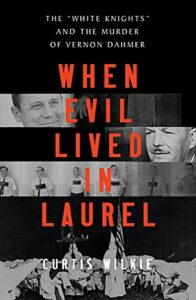CrimeReads editors select the month’s best new nonfiction crime books.
*

Margalit Fox, The Confidence Men: How Two Prisoners of War Engineered the Most Remarkable Escape in History
(Random House)
Margalit Fox crafts a rollicking good tale of spiritualism, deception, and escapades in her latest foray into narrative history. In 1917, two prisoners of war in a remote Turkish POW camp during WWI—Harry Jones, the son of a gentleman, and Cedric Hill, an working-class Aussie—managed to dupe their captors into letting them escape, using only a ouija board, rumors of treasure, and their own skills at sleight-of-hand.
Read here about the construction of the prisoners’ ouija board.

Katherine Dykstra, What Happened to Paula: On the Death of an American Girl
(Norton)
In 1970, 18-year-old Paula Oberbroeckling left her home in Cedar Rapids, Iowa, never to return. Her body was found months later, and the case has yet to be solved. Rather than simply trying to piece together a perpetrator from the facts of the case, Katherine Dykstra takes a different, more thoughtful, approach to Paula’s story, examining how stifling community standards, antagonism against interracial relationships, and assumptions about “bad girls” worked in tandem to condemn Paula and bury her story.

Andrew Baker, To Poison a Nation: The Murder of Robert Charles and the Rise of Jim Crow Policing
(New Press)
In 1900, New Orleans police took issue with a working-class Black man named Robert Charles. Charles fought back, leading to the largest manhunt in Nola history and a shootout in front of thousands. Whether you’re looking for an inspiring folk hero, an examination of police violence, or a deep dive into the origins of our deep criminal justice system inequalities, To Poison a Nation should be thought-provoking on a number of levels.

Anne Sebba, Ethel Rosenberg: An American Tragedy
(St. Martin’s)
While this biography of Ethel Rosenberg isn’t strictly true crime, or even much about espionage, it makes for essential new reading for understanding one of the most divisive cases—and maligned woman—of the 20th century. Ethel Rosenberg was a committed communist, a passionate spouse, and a dedicated mother, who sacrificed artistic and career ambitions in ways similar to many mid-century women. Her story intertwines gender and politics in a way rarely explored in Cold War history, and Anne Sebba’s biography is essential new reading for anyone interested in how a relatively ordinary woman ended up at the center of a global conflict.

Curtis Wilkie, When Evil Lived In Laurel: The White Knights and the Murder of Vernon Dahmer
(Norton)
The people of Jones County had defied the confederacy during the Civil War, but by 1965, the KKK flourished, drawing its membership from both die-hard racists and those who saw the KKK as merely necessary for success in politics or business. Here, Curtis Wilkie tells the story of independent civil rights activist and successful businessman Vernon Dahmer, murdered by the Klan, and the FBI’s long struggle to bring Dahmer’s killers to justice.
Read about the FBI’s plan to infiltrate the Klan.

















